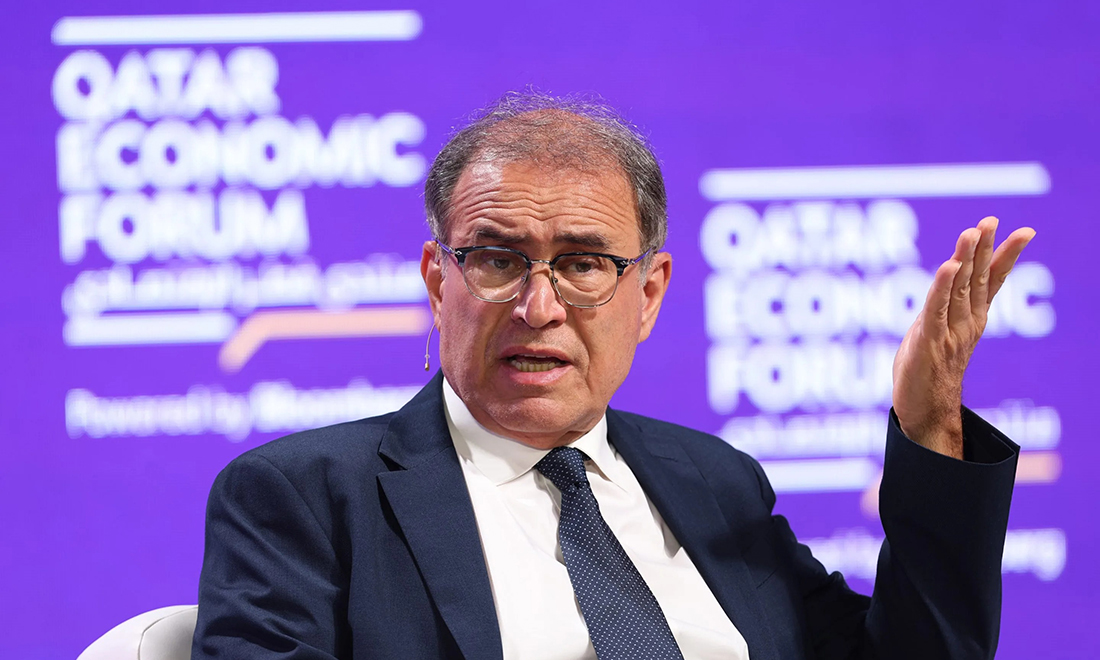
顶级经济学家鲁里埃尔·鲁比尼(Nouriel Roubini)向所有在疫情期间搬到佛罗里达州的纽约人传达了一条信息:就房地产投资而言,你应该选择中西部。
鲁比尼是纽约大学经济学教授,也是Roubini Macro Associates首席执行官。他正确预测了2008年的金融危机,并因其悲观的观点而赢得了“末日博士”的称号。
他预测美国将在年底前陷入严重经济衰退,并称任何仍然相信有望实现“软着陆”的人是“痴心妄想”。他还警告说,未来将是“严重滞胀而不稳定”的时代,全球将在未来几年出现“大规模破产和连环金融危机”。
他建议将房地产作为一种对冲通胀的手段,但他对气候变化提出了警告。
周四在彭博社的Odd Lots播客中,他警告说:“由于全球气候变化,许多房地产将陷入困境……人们从纽约搬到迈阿密,从旧金山搬到奥斯汀,这些做法非常愚蠢,这是因为佛罗里达州将被海水淹没,德克萨斯州会太热而无法在那里生存下去。”
在疫情最严重的时候,成千上万的纽约人搬到了佛罗里达州,而且许多人继续这样做。
2021年7月,南佛罗里达州的房地产经纪人邦妮·希茨格(Bonnie Heatzig)对纽约WABC-TV说:“这些人搬到南佛罗里达州开始新生活,让孩子在当地上学,开始新事业。这些人会留在这里。”
从长远的角度看待佛罗里达州的房地产
但是,鲁比尼在播客中说:“事实上,有地图显示,在未来20年里,美国一半地区要么将被海水淹没,要么太热、干旱或野火肆虐,无法在那里生存下去。”
他继续说,“因此,将会有大量移民从南部和沿海地区迁移到美国唯一能在气候变化中幸存下来的地区,也就是从中西部地区,基本上是加拿大。因此,全球气候变化将导致数万亿美元的房地产资产受损。”
对于投资者来说,他仍然建议将房地产(尽管只在某些地方)与短期政府债券、通胀指数化债券、黄金和其他贵金属一起作为“能够对冲通货膨胀、政治和地缘政治风险以及环境破坏的资产”。
他补充说,“只要货币政策不太紧缩,房地产就是对冲通胀的好手段。”当然,美联储一直在加息,这导致房地产投资信托(REITs)今年表现不佳。但他表示,美联储可能会因持续加息而“临阵退缩”,鉴于此,“我认为房地产的表现将超过股票,因为它是一种固定供应类型的资产,这是在短期内会出现的情况。”
不过,考虑到气候变化,“你必须在美国合适的地区找到投资类型。”他说。(财富中文网)
译者:中慧言-王芳
顶级经济学家鲁里埃尔·鲁比尼(Nouriel Roubini)向所有在疫情期间搬到佛罗里达州的纽约人传达了一条信息:就房地产投资而言,你应该选择中西部。
鲁比尼是纽约大学经济学教授,也是Roubini Macro Associates首席执行官。他正确预测了2008年的金融危机,并因其悲观的观点而赢得了“末日博士”的称号。
他预测美国将在年底前陷入严重经济衰退,并称任何仍然相信有望实现“软着陆”的人是“痴心妄想”。他还警告说,未来将是“严重滞胀而不稳定”的时代,全球将在未来几年出现“大规模破产和连环金融危机”。
他建议将房地产作为一种对冲通胀的手段,但他对气候变化提出了警告。
周四在彭博社的Odd Lots播客中,他警告说:“由于全球气候变化,许多房地产将陷入困境……人们从纽约搬到迈阿密,从旧金山搬到奥斯汀,这些做法非常愚蠢,这是因为佛罗里达州将被海水淹没,德克萨斯州会太热而无法在那里生存下去。”
在疫情最严重的时候,成千上万的纽约人搬到了佛罗里达州,而且许多人继续这样做。
2021年7月,南佛罗里达州的房地产经纪人邦妮·希茨格(Bonnie Heatzig)对纽约WABC-TV说:“这些人搬到南佛罗里达州开始新生活,让孩子在当地上学,开始新事业。这些人会留在这里。”
从长远的角度看待佛罗里达州的房地产
但是,鲁比尼在播客中说:“事实上,有地图显示,在未来20年里,美国一半地区要么将被海水淹没,要么太热、干旱或野火肆虐,无法在那里生存下去。”
他继续说,“因此,将会有大量移民从南部和沿海地区迁移到美国唯一能在气候变化中幸存下来的地区,也就是从中西部地区,基本上是加拿大。因此,全球气候变化将导致数万亿美元的房地产资产受损。”
对于投资者来说,他仍然建议将房地产(尽管只在某些地方)与短期政府债券、通胀指数化债券、黄金和其他贵金属一起作为“能够对冲通货膨胀、政治和地缘政治风险以及环境破坏的资产”。
他补充说,“只要货币政策不太紧缩,房地产就是对冲通胀的好手段。”当然,美联储一直在加息,这导致房地产投资信托(REITs)今年表现不佳。但他表示,美联储可能会因持续加息而“临阵退缩”,鉴于此,“我认为房地产的表现将超过股票,因为它是一种固定供应类型的资产,这是在短期内会出现的情况。”
不过,考虑到气候变化,“你必须在美国合适的地区找到投资类型。”他说。(财富中文网)
译者:中慧言-王芳
Top economist Nouriel Roubini has a message for all the New Yorkers who moved to Florida during the pandemic: In terms of a real estate investment, you should have picked the Midwest instead.
Roubini, a New York University economics professor and CEO of Roubini Macro Associates, correctly predicted the 2008 financial crisis and has earned the moniker “Dr. Doom” for his pessimistic views.
He’s predicted the U.S. will fall into a deep recession by year’s end and called anyone who still believes that a “soft landing” is possible “delusional.” He’s also warned that an era of “great stagflationary instability” lies ahead, with “massive insolvencies and cascading financial crises” worldwide in the coming years.
He recommends real estate as one hedge against inflation, but he offers a caveat with regards to climate change.
On Bloomberg’s Odd Lots podcast on Thursday, he warned that “a lot of real estate is going to be stranded because of global climate change…People have stupidly moved from New York to Miami, and from San Francisco to Austin, but Florida is going to be flooded and Texas is going to be too hot to survive there.”
Tens of thousands of New Yorkers moved to the Sunshine State during the height of the pandemic, and many continue to do so.
“These are people that are moving down to South Florida to start their life, to put their children in school, to start a new business,” South Florida real estate agent Bonnie Heatzig told New York’s WABC-TV in July 2021. “These people are here to stay.”
Florida real estate in the long run
But, Roubini said in the podcast, “Literally there are maps that show that half of the U.S. in the next 20 years is going to be either underwater on the coastlines or too hot, or droughts or wildfires, to be living in it.”
“So,” he continued, “there will have to be a massive migration from the south and the coastlines towards the only part of the U.S. that is going to survive climate change, [which] is the Midwest into essentially Canada. So there’ll be trillions of dollars of real estate assets that are going to be damaged by essentially global climate change.”
For investors, he still recommends real estate (though only in certain locations) along with short-term government bonds, inflation-indexed bonds, and gold and other precious metals as “assets that will hedge them against inflation, political and geopolitical risks, and environmental damage.”
Real estate, he added, is “a good hedge against inflation as long as monetary policy is not very tight.” Of course, the Fed has been hiking interest rates, which has contributed to REITS, or real estate investment trusts, doing poorly this year. But, he said, the Fed will likely “wimp out” with those hikes, and, given that, “I think that real estate is going to outperform equities because of the nature of being a fixed-supply kind of asset, that is in the short run.”
Given climate change, though, “You have to find the types of investment in the right parts of the United States,” he said.






